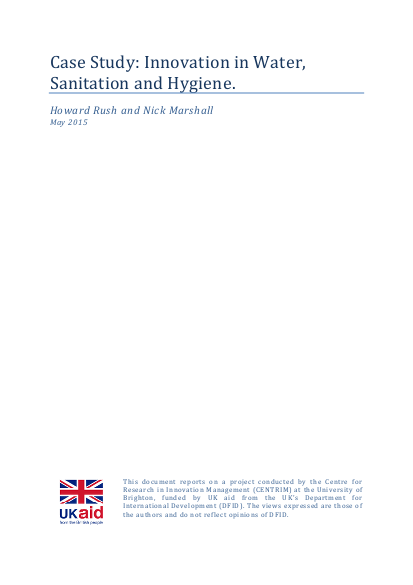
We report here the results of a case study undertaken as part of the Humanitarian Innovation Ecosystem project, funded by the UK Department of International Development (DFID). The case study provides an analysis of the functioning of the humanitarian innovation ecosystem within the sub-sector of humanitarian response known as WASH (Water, Sanitation and Hygiene). It is based upon twenty-five in-depth interviews with administrators, practitioners, and researchers, all of whom have long and deep experience of working in the sector, as well as both published and unpublished secondary source material. To help us understand the WASH innovation ecosystem, we use two main conceptual frameworks. The first is an idealised model of the system dynamics of innovation, identifying the different stages and activities typically involved in innovation (recognition of need, generation of new ideas, creation of plausible inventions and solutions, development and implementation of potential innovations, and diffusion of innovations). The second, which we refer to as the Rs framework, seeks to uncover the detailed factors influencing how this system operates using the following headings: resources, roles, relationships, rules, routines, and results. Taken together, these frameworks allow us to characterise the main elements of the WASH ecosystem, as well as to detail the different influences that act either to facilitate or inhibit the successful movement of innovations through the various stages of the innovation process.
